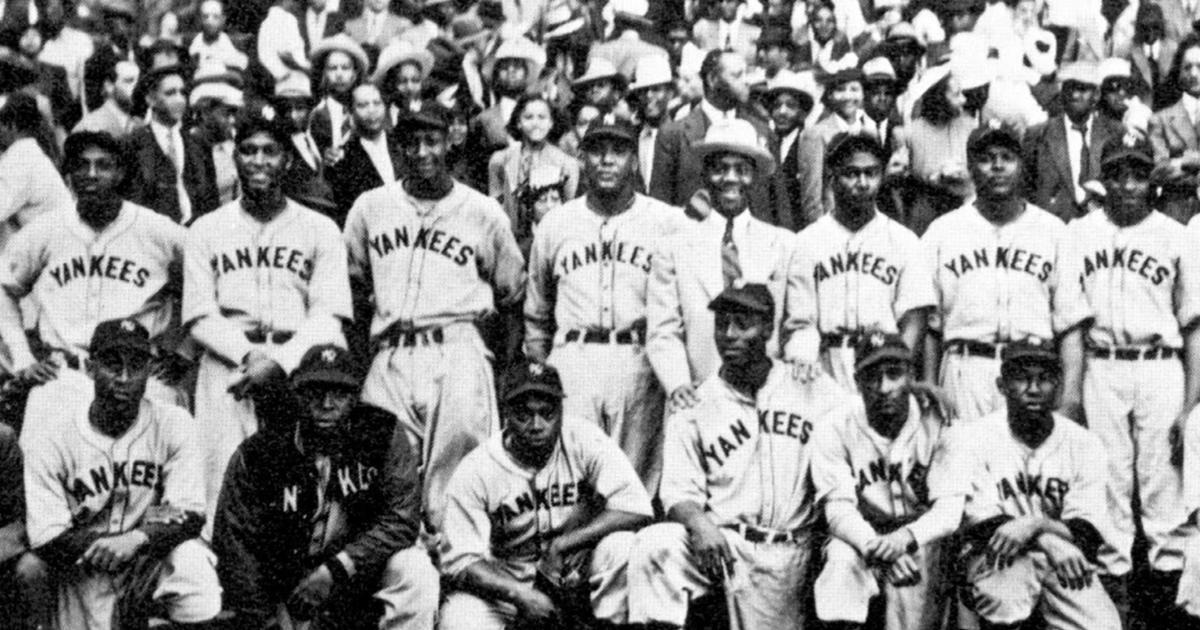This piece was written during the 2023 WGA and SAG-AFTRA strikes. Without the labor of the writers and actors currently on strike, the movie being covered here wouldn’t exist.
The Negro League at this point has hit legendary status. Stories of players like Josh Gibson and Satchel Paige just hitting dingers and hurling no-hitters are stories of lore passed down from fathers and sons, with occasional old timey video footage you can find online. The League boldly attempts to weave all of these stories together and frame the league in the context of America and the African-American experience in a tight, 100 minute documentary. Anyone like me who read books about these amazing athletes can now rest easy knowing they have successfully transferred to a new visual medium, ensuring their legacy continues for generations to come.
Until 1947, Major League Baseball was a league of white baseball players (the doc makes that clear) like Babe Ruth and Lou Gehrig. But from the 1920s till 1960, for the kids out there, the MLB had a rival: the Negro League. Sam Pollard’s doc goes through that entire 4 decade arc of The League. And not just the league: how the league fit into African-American culture as a whole for 4 decades.
The League walks a delicate balancing act between micro and macro, and walks it very well. For the human stories, I don’t know if younger people realize how many amazing players played in the Negro League. The stories about Babe Ruth calling his shot should be right up there with Satchel Paige hurling opening day no-hitters or whipping cherries off trees 60 feet away with a sick. Josh Gibson gets his nice overdue profile here, from what we understand a hitter every bit as good as the Great Bambino. And for MLB fans, some of the great MLB players like Larry Doby (Newark Eagles), Hank Aaron (Indianapolis Clowns), and even Jackie Robinson (Kansas City Monarchs) got their starts in the Negro League which gave them the notoriety to make the jump into the MLB. Talking heads past and present (the moving pictures existed at this point) give us a great idea of just how awesome some of these players were. And more importantly, the day to day life of a professional Negro League Baseball Player.
And that’s where the macro gets woven into the story. The Negro League gets put in context of what life was like for African-Americans during that 40 years of American History. We get insights into the business side: the Negro “League” is actually 3 different leagues: the Negro National League (1920–31, 1933–48), the Eastern Colored League (1923–28), and the Negro American League (1937–60), each with different owners who get some nice profiles, like Rube Foster of the Chicago American Giants, and my personal favorite, Abe and especially Effa Manley (that’s right, a black woman predominantly ran/negotiated contracts for the Newark Eagles during their best years). We see how the popularity of this American pasttime fit into black social calendars, like church being moved earlier to accommodate double headers. We see as the country goes so does the league, as the Great Depression causes some of the Negro League teams to fold. The constant treatment of black as 2nd class citizens starts to get challenged as the players leave the country, either to fight in WWII or to play summer ball in the Caribbean, where they were just normal people. As such, the years of money and pressure to integrate push the MLB to start integrating black players. As great as that moral arc of the universe bending the right way was, it caused the Negro league to fall apart, as the new heroes were now a part of America’s more expensive bigger baseball. As sad as that story might seem, there’s great pride all over The League, as everyone involved knows how special it was, because African-Americans created it themselves, with no help from anyone else.
For a documentary, lots of times the subject matter can be extremely dour or self-important because of the cause being promoted. The League is important, but everyone involved clearly is excited to speak about the thing they were a part of that’s truly something special, so none of that dourness is present, replaced by mostly joy. If you have a kid who’s into baseball, I couldn’t be more excited to show them The League, so they get an insight into all of the great players in history, not just the MLB ones.

